Creativity Shan’t Be Policed in Issa Rae’s 'Rap Sh!t'
Rap Sh!t has been confirmed for a second season by HBO! Go watch it and support this creative exploration of Hip-Hop culture from Issa Rae.
MAJOR SPOILERS AHEAD FOR SEASON 3 INCLUDING THE FINALE!
Remember when the Marvel Cinematic Universe gave us a special feminist moment with all the female superheroes in a lineup in Avengers: Endgame? I don’t know if you recall this, but the Season 2 finale of The Boys also did something similar when Maeve (Dominique McElligott), Kimiko (Karen Fukuhara), and Starlight (Erin Moriarty) beat the Nazi out of Stormfront (Aya Cash). In fact, The Boys has been pretty big on female empowerment from the start, be it through the ridicule of patriarchal standards or through giving characters genuine moments of rebellion. Examples of the former would include the makeover of The Deep (Chace Crawford) after his assault on Starlight became public news and the way Ashley (Colby Minifie) stays loyal to Homelander (Anthony Starr) despite regular neglect from him. Examples of the latter would include Starlight doing an Instagram live about Vought’s lies and Maeve holding her own in a fistfight against Homelander himself. The last moment is from the Season 3 finale.
As a queer person, the “bury your gays” trope always rubs me the wrong way. Something about the foreshadowing surrounding Maeve’s under-the-table dealings with Butcher (Karl Urban) to help kill Homelander had me feeling uncomfortable throughout the season. Hearing that she had been abducted was really a bad omen, you can say. But then, The Boys is also one of the few shows to openly address bi-erasure in media by having Ashley tell Maeve that being a lesbian is an “easier sell” when she was coming out and her girlfriend pointed out she was actually bi and not gay. So, I held on to hope. Eventually, they revealed Maeve isn’t dead, and the writers gave Maeve a really empowering moment of looking into Homelander’s eyes while in a power-nullifying prison cell with him only to realize and say to his face that he’s scared!
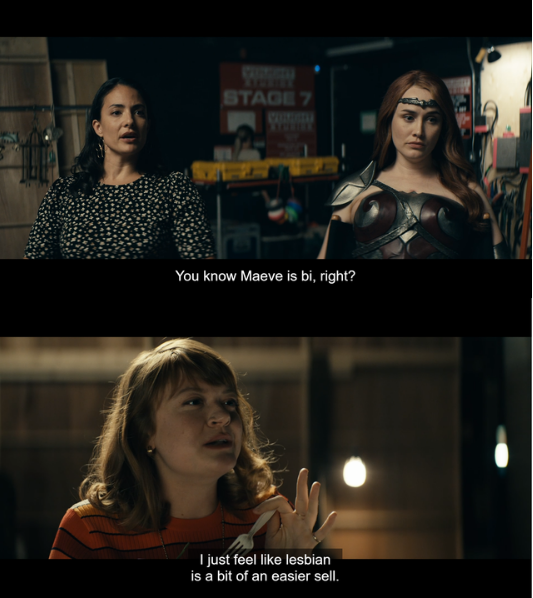
The buildup of her disgust for the leader of the Seven finally came to what seemed like a payoff in the Season 3 finale, as she got into a brawl with him… and didn’t die! I don’t think we could have put it simply under “bury your gays” if she had, but she didn’t in the first place! It was even WITHOUT plot-armor, because she got grievously injured. Then she went and sacrificed herself in order to prevent Soldier Boy (Jensen Ackles) from killing everyone and I felt like that was gratuitous, and might even fall within the trope. Except, she didn’t die, did she? Not only that, she got to get away! With her girlfriend, she retired after officially faking her death. So not only is the gay not killed, she’s given a happy ending! This is genuine ally-ship, and Incluvie approves.
Next, let’s talk about Marvin, or M.M. (Laz Alonso) as the group calls him. Right from the first season, his inclusion had felt like positive representation, because he wasn’t a mouthpiece for the black community but a genuinely motivated character. He has political inclinations based on his past and his motivation is based in a story of White Supremacy, and also of capitalism. Would Marvin’s dad have failed at getting justice for his wife if a black superhero had killed her? Based on Vought and its capitalist inhumanity, I’m going to say yes. But does it not have significance that she was killed by a straight white male that upheld toxic masculinity with his macho alpha personality and basically represented the straight white male America? Of course! And his celebration when Soldier Boy’s shield breaks during the brawl in the Season 3 finale says it all.
The same issue is tackled through A-Train (Jessie Usher)’s narrative and in much detail. Firstly, you can feel he is sort of a diversity hire for Vought. Secondly, the moment he tries to do something about racism, he is institutionally stopped because Vought’s interests are in protecting the superhero image. The major role in this narrative about racism is played by A-Train’s brother Nate (Christian Keyes). He first mentions to A-Train that he can use his platform for politics, to which A-Train says he’s like Michael Jordan, not Malcolm X. So you can see how the institutions actually control the narrative. Malcolm X is not a figure to aspire to be because he rebelled, but Michael Jordan is a hero because he entertained.
Then when A-Train kills the racist Blue Hawk (Nick Wechsler), the show delivers its most brutally honest dialogue. Firstly, A-Train’s action is motivated by the need for revenge, so you can see how the position of power and casual racism has rubbed off on him. He doesn’t feel personally affected to take action despite the suffering of his community unless he is affected personally. And then in the Season 3 finale, Nate tells him that A-Train didn’t help the cause. Incarcerating Blue Hawk would have opened people’s eyes to racism amongst the superheroes, but A-Train handed Vought a way they could manage things with a typical PR move. This is a powerful way of addressing the BLM movement.
Kimiko as an Asian woman has an empowering screen presence. Watching her fight with a group of Americans and a French immigrant, I felt seen as an Asian. Her journey from being a victim of trafficking, to her antagonistic behavior, and eventually Frenchie (Tomar Kapon) falling in love with her and learning her language, has been a rollercoaster ride. Her identity crisis as a superhero who can only destroy is an impactful moment in Season 3. I love how she chooses to let her powers go because she hates them, and then decides to get them back when she realizes they help her protect Frenchie. The most liberating aspect of her relationship is that race isn’t a part of the conversation. Sometimes, that itself is powerful representation – having minorities deal with issues that don’t stem from them being minorities.
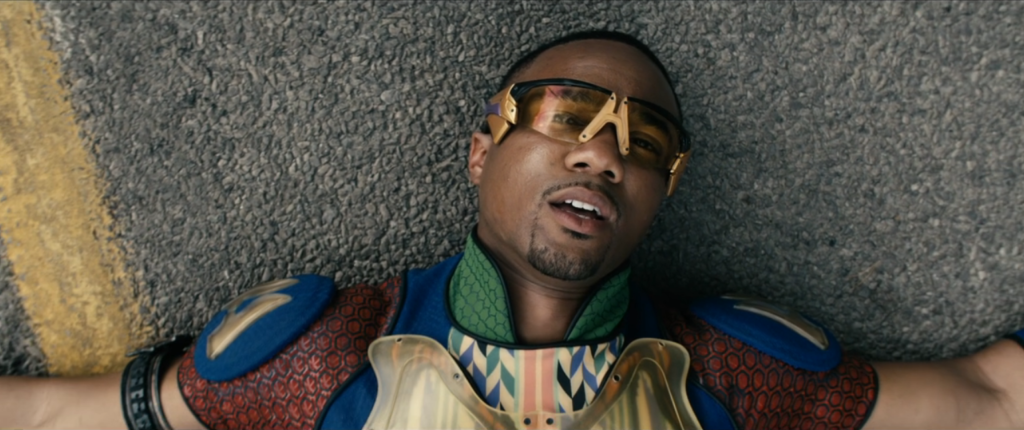
However, Frenchie and Kimiko feeling victimized at the hands of the Americans who keep making soldiers and/or slaves of them is an important depiction of the immigrant experience. I also love that the writers made it such that they have to communicate in a language she developed with her brother, a completely personal and obviously indigenous sign language. The pressure on foreigners to be fluent in English to mingle amongst native English speakers is real, and there’s enough shaming that happens based entirely on accents and quality of grammar and language, also known as linguistic racism. So Kimiko really embodies some of Incluvie’s principles of representation.
Starlight and Maeve are literal and metaphorical heroines. This group also includes Kimiko, but let’s talk about Starlight first. Her arc has always been empowering and compelling. Right from the start where she openly speaks out about The Deep assaulting her to the end of the Season 3 finale where she dumps her uniform and basically says goodbye to The Seven and Vought, she embodies Rebel Girl energy. The latest season saw her meeting The Deep after he returns to The Seven. He offered a typical half-hearted apology, which is made clear, that Starlight must accept. While she accepts publicly, she goes on to become an influencer against Vought. And she even confronts Homelander about not being scared of him after he falsely traps him into pretending to be his girlfriend.
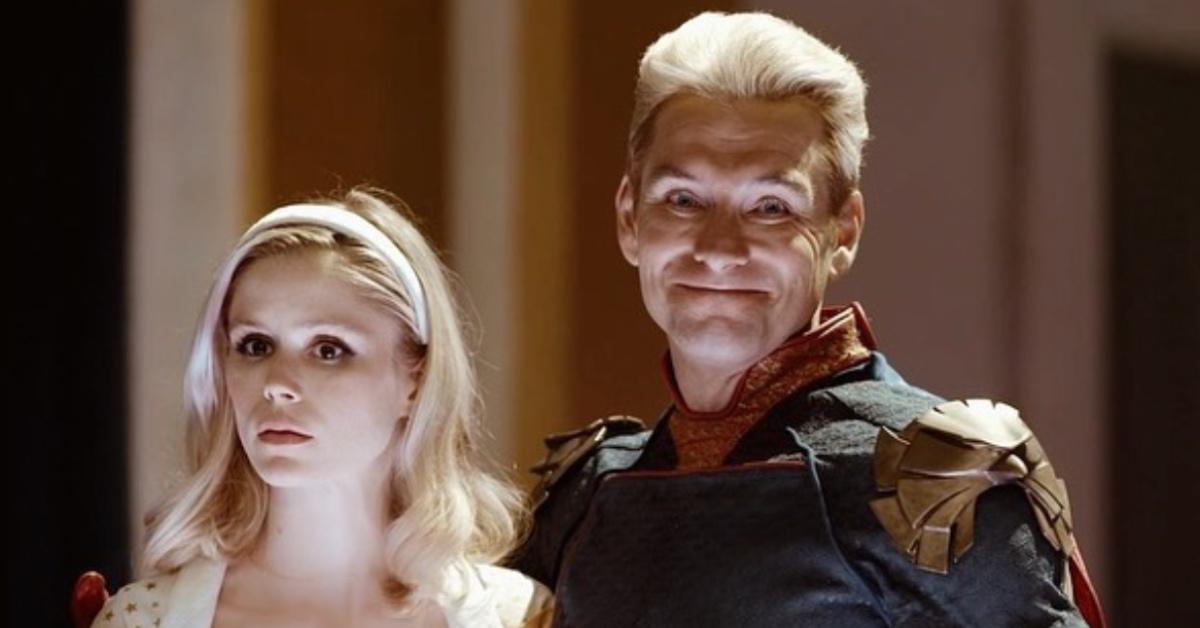
She eventually exposes Vought’s frauds through social media and even uses her influence to expose Homelander by recording him. Homelander and his loyal assistant Ashley, who used to run the PR department, do everything in their power to discredit Starlight but she remains unmoved and spreads enough awareness to have an angry crowd attack Vought’s facility demanding Maeve be freed. Also, who doesn’t love to see a toxic masculine white boy superhero being overpowered by the “timid country girl”? The writers certainly do, and they made sure to include that in the Season 3 finale.
Now, not only does Maeve’s story subvert the “bury your gays” trope, it portrays the impact of having powerful female voices. The almost-brainwashed Ashley who had become a corporate slave, upholding Vought’s interests at the cost of her humanity, ended her arc in the Season 3 finale by deleting footage that showed that Maeve actually survived. This is more than just humanity triumphing. Her sympathy for a fellow woman who deserves her rest and deserves distance from Homelander is what triumphed. Speaking of bonds between female characters, both the bonds that Starlight shares with Maeve and Kimiko are so liberating!
With Maeve, especially, they have the common ground of being victims of Homelander and their friendship blossomed into a sisterhood as days passed. Starlight came to check up on Maeve at the end of the Season 3 finale, and you could see the delight in her eyes when Maeve told her of her plan to leave crime-fighting and life as a superhero behind her for good. In a really heartfelt moment, Maeve even told her that the first interaction they had, practically saved Maeve. And literally too, later, when Starlight’s fans caused Vought to take her out of the prison she was being held in. As for Kimiko, Starlight is the first one she opens up to, about feeling vulnerable without her powers. Her cheerful declaration that she’s happy to have Starlight become a part of the Boys is testimony to how deep their bond is. I can’t wait for more moments of them together. Women supporting themselves is something Incluvie stans and the Season 3 finale is chock-full of moments of that happening.
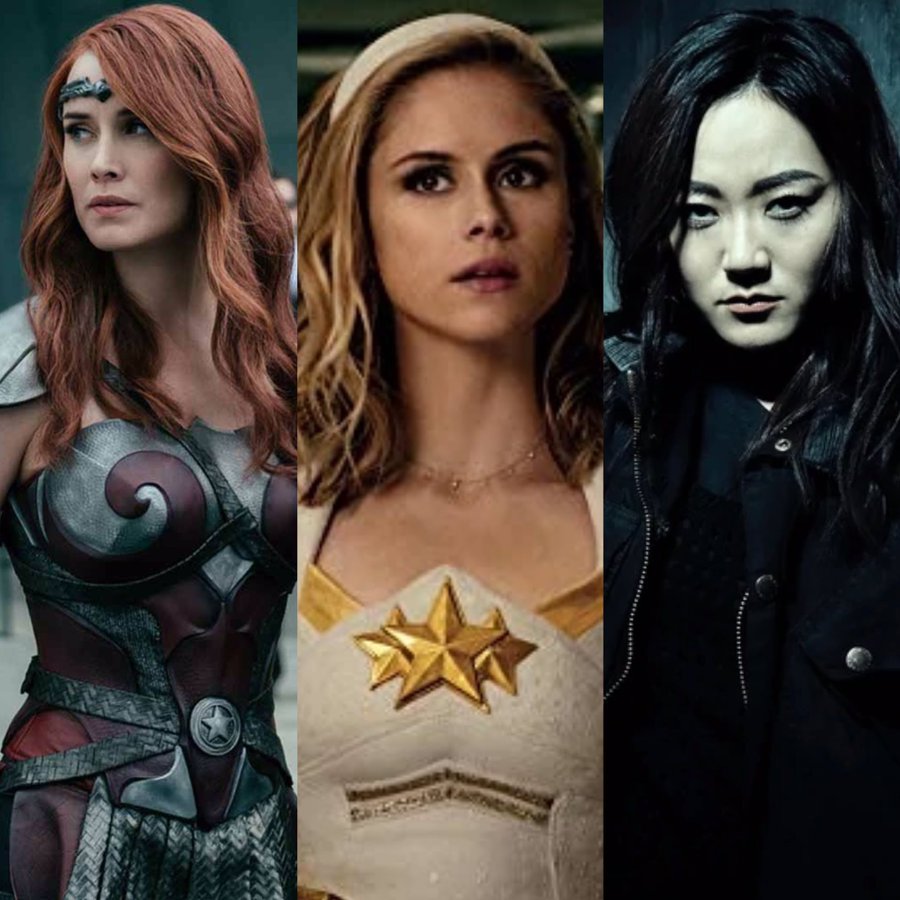
Strong female, queer, and PoC characters are something that The Boys has in spades. It has a diverse cast and I’d like to see how the show develops moving forward. For now, especially from the aspect of female empowerment, The Boys would be my go-to superhero content. Jessica Jones and Ms. Marvel are possibly the only mainstream superhero-focused content that has more female-centric narratives. Firstly, the only legitimate superhero in the Boys, is Kimiko, a woman (until Starlight joins for good this season). The only superhero who publicly shames Vought and uses their influence for change is Starlight. And the only superhero who survives a one-on-one prolonged fight with Homelander is Maeve. The only character not including the Boys who survives despite being involved in the fight against superheroes is Grace Mallory (Laila Robins). Strong female characters are something The Boys does really well.
Finally, another kind of representation that really matters is that of mental health and my God does The Boys get deep into it in the third season. Firstly, Soldier Boy suffers from Post-Traumatic Stress Disorder. It’s discussed in the show and Hughie (Jack Quaid) even tries to warn Soldier Boy about it. In a classic toxic alpha male move, he denies being ill. Jensen Ackles beautifully pulls off the performance, through ticks and facial expressions. In fact, his character is literally shown to be triggered by a specific Russian song that used to play in the lab where he was experimented on while he was held captive there. This is a common trait of PTSD patients, and the representation here feels genuine. The same goes for M.M who has O.C.D. Starlight asks him about it in a scene from the third season and M.M explains how it works.
Then we have survivors of abuse at the hands of parental figures. First comes Butcher with an extremely toxic relationship with his father. His father used to physically abuse him. He used to take beatings on behalf of his brother and eventually gave in to violent instincts that developed from having untreated trauma. After he left, his brother killed himself, and Butcher never really healed from it. He is a textbook example of toxic masculinity preventing men from being able to be vulnerable and open about their trauma. He never addresses his issues and instead uses violent outbursts and killing sprees as an outlet. It’s toxic to the point that apart from being a violent fighter to protect Ryan, he has no fatherly bond with the kid. Ryan even leaves him in the Season 3 finale, choosing Homelander over him.
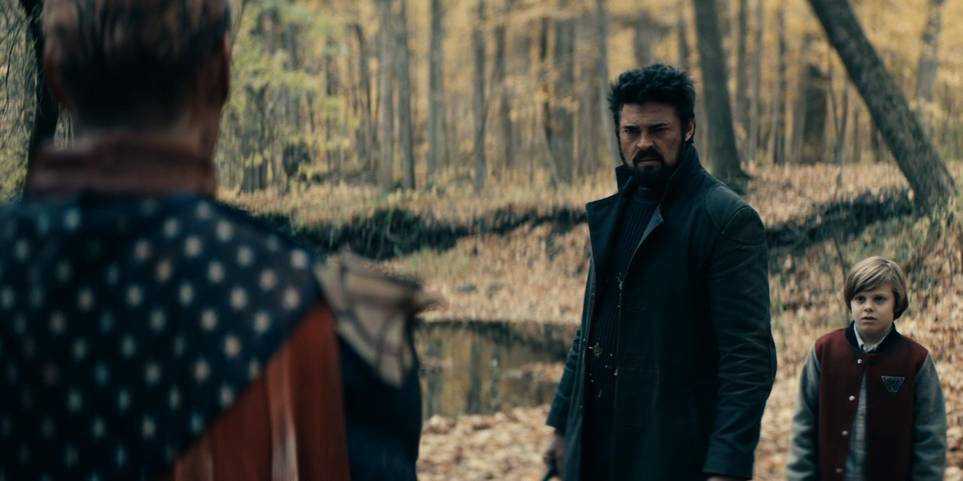
Next comes Black Noir (Nathan Micthell). In a heartfelt scene from the penultimate episode of season 3, the show gave us his backstory. It told a story of an ambitious boy who got cheated out of work by his “upstanding” leader, Soldier Boy, and then got brutally physically abused for standing up for himself. His story is extremely disturbing. He never got any kind of justice and when he was closest to it, his new “upstanding” leader, Homelander, killed him. His inability to speak is a metaphor for the still-present stigma around bullying. Speaking up against it, especially if the perpetrators are powerful, never has good consequences, and being a victim of bullying is not even considered a reason for being mentally ill, by a large part of the non-doctoral or non-psychiatric population.
The poster boy for mental illness is also the poster boy for the show, the one and only Homelander himself. He’s very clearly disturbed, and you can see that right from the pilot of the show. His psychosis is practically what drives the primary narrative. In fact, it’s how he unravels and how that affects the people in his immediate surroundings and his enemies that determine the direction of the storyline. This is also the case with Butcher. The two most toxic masculine characters having similar repercussions of not having therapy is definitely not surprising. While the parallels between the characters can be drawn, I love how the show deals with Homelander’s insecurities in the latest season. There’s a scene in the third season where his internalized egoism breaks him down when he needs support. A toxic relationship with oneself is often a consequence of PTSD. Being experimented on as a kid, without anyone to form meaningful relationships with, can definitely cause PTSD. In fact, you can see he becomes genuinely vulnerable in the Season 3 finale when he confronts Noir about having a father. Starr deserves accolades for his brilliantly layered performance as this deeply troubled character.
The antithesis to Butcher and Homelander is Hughie Campbell. The man is a really good example of healing. Sure, he could use therapy too, but at least he has a good relationship with himself. Season 3 saw him spiraling out and getting hooked on a drug that gives him a sense of fulfillment, which is how he began defining strength. It ends with him claiming that his dad, who didn’t do anything apart from his job and take care of Hughie when abandoned by his wife, represents strength. Despite falling into the pit of toxic masculinity, he climbs out, albeit with the help of Starlight. The critique of toxic masculinity is most impactful in his characterization. He became disrespectful towards Starlight and stopped thinking before crossing lines, only to eventually find a sense of self-worth in doing the least he can as a poor-at-combat non-superhero. I felt empowered to witness him upholding himself as being strong in the Season 3 finale. Positive representation of mental illness and critique of the patriarchy will always earn you brownie points from Incluvie.
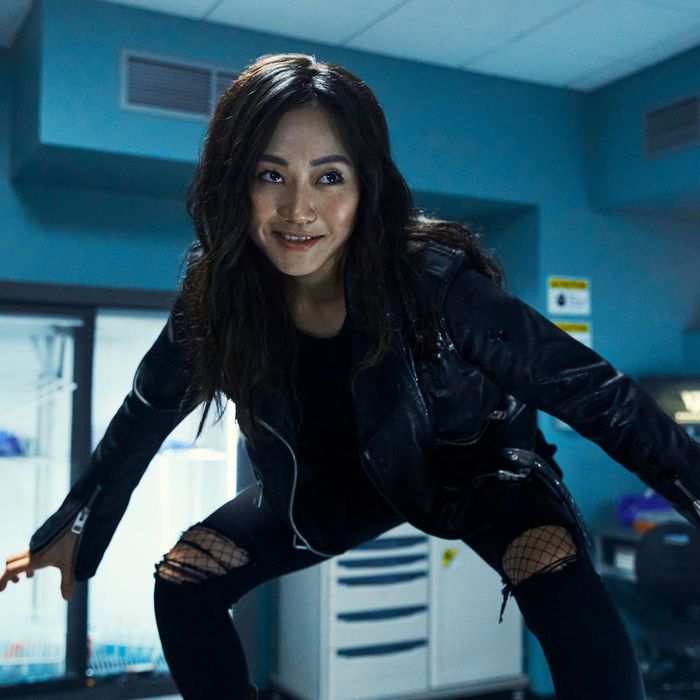
The sixty-minute-long episode that the third season ends on, challenges norms and delivers empowering moments, all of which were developing through the season. A special mention should go to Kimiko fighting off armed guards while dancing to the song Maniac by Michael Sembello. If you’ve seen Jumanji: Welcome to the Jungle, you’ll know how sexualized Karen Gillan’s dance fight scene was. Karen Fukuhara’s choreography is absolutely different and the camera empowers her instead of sexualizing her. So, the Season 3 finale overall upholds everything that Incluvie is primarily concerned about when it comes to media content.

Related lists created by the same author
Rap Sh!t has been confirmed for a second season by HBO! Go watch it and support this creative exploration of Hip-Hop culture from Issa Rae.
Related diversity category
This coming-of-age movie is about a group of girl trying to find their missing friend after a wild night none of them can remember.
Related Movie / TV / List / Topic
'Tuca and Bertie' (2019) is an animated series centering around best friends of the same name as they traverse the challenges of their thirties.